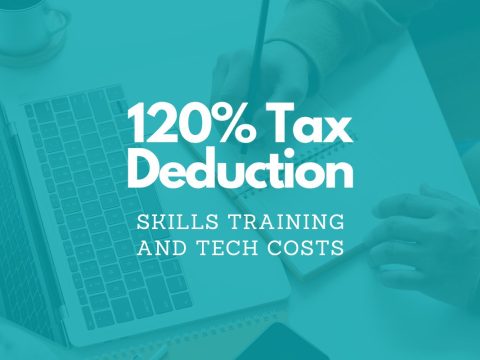Correctly reporting property transactions
For every property transaction that you make there may be a GST consequence you need to consider. If you are making transactions involving property you will need to report your GST obligations.
Transactions that may have a GST consequence include:
- buying
- selling
- renting
- developing
- building
- renovating
- using a property to run a business.
For example, if you purchased a property and subsequently subdivided it for sale, you may have a GST taxable supply that you need to report.
It is important that you understand your tax reporting obligations in order to minimise the risk of costly penalties.
Many people are actually carrying on a business when making property transactions but do not register for GST when they are required to do so. Even with a ‘one-off’ transaction you may still be required to register for GST because your one-off property transactions may be considered a business.
If you are dealing with property (for example, you buy, sell, lease or develop), you may be considered to be conducting a business. If your turnover from these activities is more than the GST registration threshold you may be required to register for GST. The current threshold for GST registration is $75,000 of turnover.
For GST purposes, property includes any of the following:
- land
- land and buildings
- an interest in land
- rights over land
- a licence to occupy land.
Selling property and GST
When you sell a property, there are several ways that the property may be treated for GST purposes:
- The sale may be taxable which means you are liable for GST on the sale, and you can claim GST credits for anything you purchase or import to make the sale.
- The sale may be GST-free which means you are not liable for GST on the sale, but you can claim GST credits for anything you purchase or import to make the sale.
- The sale may be input taxed which means you are not liable for GST on the sale and you cannot claim GST credits for anything you purchase or import to make the sale.
- The sale may be mixed which is a combination of any of the above.
Given the many permutations available it is very important that you discuss your property transactions with us in order to treat your property transactions in the correct manner for GST.
You apply GST differently to property depending on whether it is either commercial or residential property.
Residential premises include houses, units and flats. It does not include vacant land.
Properties are residential premises if they can be occupied, are occupied or are intended to be occupied as residences.
New residential premises
Generally residential properties are input taxed however there are different treatments for GST purposes if the premises are considered to be new residential premises.
Residential premises are new when any of the following apply:
- they have not been sold as residential premises before
- they have been created through substantial renovations
- new buildings replace demolished buildings on the same land.
Residential premises are no longer new residential premises if they have been continuously rented for five years after first becoming new residential premises. They may still be considered new residential premises where they have been held for a dual purpose.
One example of a dual purpose is where the premises is being marketed for sale whilst being rented out as an input taxed supply. That is because they have not have been held ‘solely’ for making input taxed supplies for at least five years.
You can claim GST credits for any purchases you make for the sale of new residential premises (subject to the normal rules on GST credits) and you are liable for GST on the sale.
If GST applies to your sale of new residential premises, you generally pay GST of one-eleventh of the sale price. You may be eligible to use the margin scheme to work out the GST you must pay.
Commercial residential premises
Commercial residential premises include:
- hotels, motels, inns
- hostels, boarding houses
- caravan parks, camping grounds
- establishments that provide residential premises that are similar to hotels, motels, inns, hostels and boarding houses.
Commercial accommodation is accommodation in these commercial residential premises.
If you sell a commercial residential premises you are generally making a taxable sale and you are liable for GST of one-eleventh of the sale price.
You may also sell commercial residential premises in either of the following ways:
- under the margin scheme
- as a going concern
You can claim GST credits on purchases you make that relate to selling your property (subject to the normal rules on GST credits), for example, the GST included in real estate agents’ fees.
If you purchase commercial residential premises, you can claim the GST included in the purchase price of the property as long as either:
- the seller did not use the margin scheme to work out the GST included in the price
- the sale was not a GST-free sale of a going concern to you and the seller was registered or required to be registered for GST.
- You may also be able to claim a GST credit on other expenses, such as solicitor’s fees, that relate to buying the property.
Generally, the amount of GST you must pay on property sales is equal to one-eleventh of the sale price. If eligible, you may be able to use the margin scheme on your property sale. The margin scheme is a way of working out the GST you must pay when you sell property. You can only apply the margin scheme if the sale is taxable.
The margin is generally the difference between the sale price and one of the following:
- the amount you paid for the property
- an appropriate property valuation.
Whether you can use the margin scheme depends on how and when you purchased your property.
The above reading gives an insight into the complications that may arise when it comes to property and GST transactions. For further advice on any of the above please talk to us.



